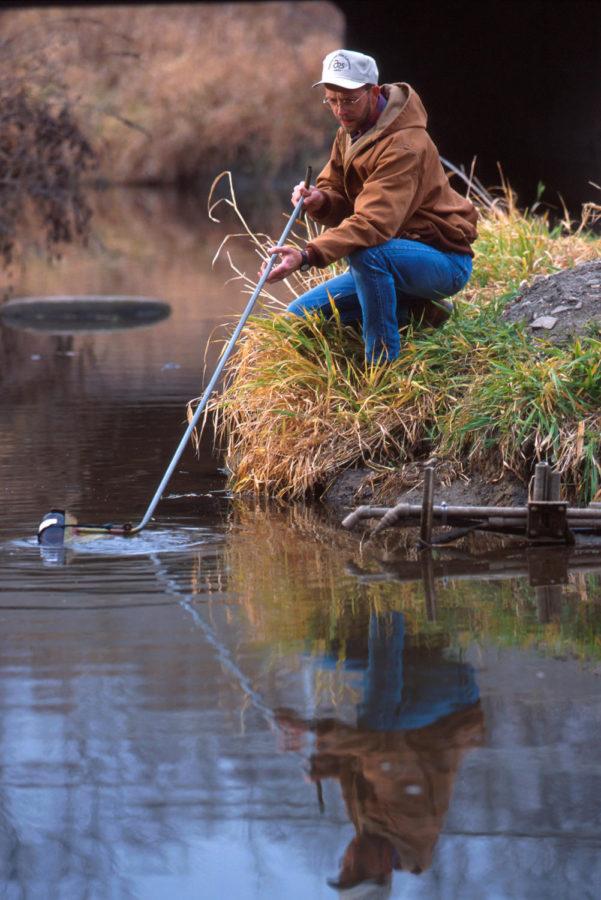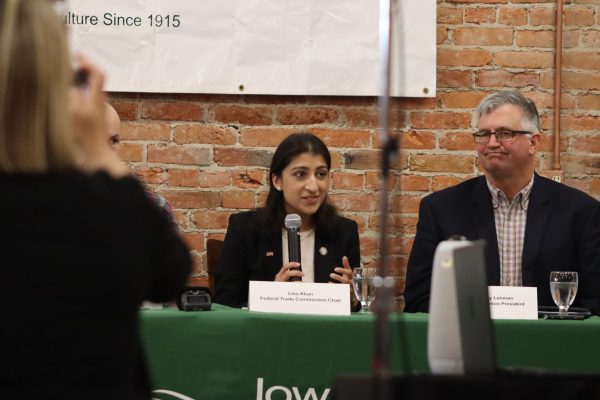New projects aim to improve agriculture
Jeff Nichols, a technician at the National Laboratory for Agriculture and the Environment, collects a water sample from Walnut Creek south of Ames. The U.S. Department of Agriculture is studying the effects of farming practices on water quality.
September 25, 2014
The Iowa Nutrient Research Center is funding 10 new research projects at Iowa’s regent universities.
The projects are largely based on river water quality. Researchers are investigating nutrients in the water and how to use new tools to improve agricultural farming.
The projects are piggy-backing off of projects that were funded for 2013-14.
“The goal of the projects is to reduce the amount of nutrients lost in service water not just here in Iowa, but also in the Gulf of Mexico,” said John Lawrence, Director of INRC. “We are trying to identify methods to reduce the loss of those nutrients.”
Lawrence explained some of the tools that affect nutrient levels researchers will be studying.
He said bioreactors, which are underground trenches filled with wood chips, help maintain nutrients in the soil that would otherwise be lost. Healthy nutrient levels are essential to soil quality.
Saturated buffers are being tested to help manage nitrogen levels in the soil. They are used to reduce nutrient drainage into bordering waterways and vegetated areas.
Yuting Guo, a graduate student in sociology, was hired to help with the research.
“I think it will help solve some environmental problems,” Guo said. “I’m interested to see how [the research] affects other states and other places.”
Lawrence said not all of the research will originate in the ground. Satellite data and field spreadsheets are being used to help farmers best decide how and when to plant their crops for their particular field.
Cover crops, which help protect farming soil during the offseason, are being used to maintain nutrients that may otherwise be lost because of weather factors.
Psychological research plays a large part in the projects as well.
David Peters, an associate professor in sociology, said his research will improve understanding of the decision making process of farmers.
“Some farmers may have attitudes opposed to some of the research used,” Peters said. “They may have concerns on how different practices affect the environment. It’s our goal to try to understand the mechanics that make farmers adopt conservation techniques.”
Guo said one of the most important things that students should understand is the importance of attitude when taking action.
“We have so many serious problems here [in the environment],” Guo said. “This research makes me realize that I have to take action to protect our environment. Understanding [farmer’s] attitudes make them more willing to accept the new technology.”

















